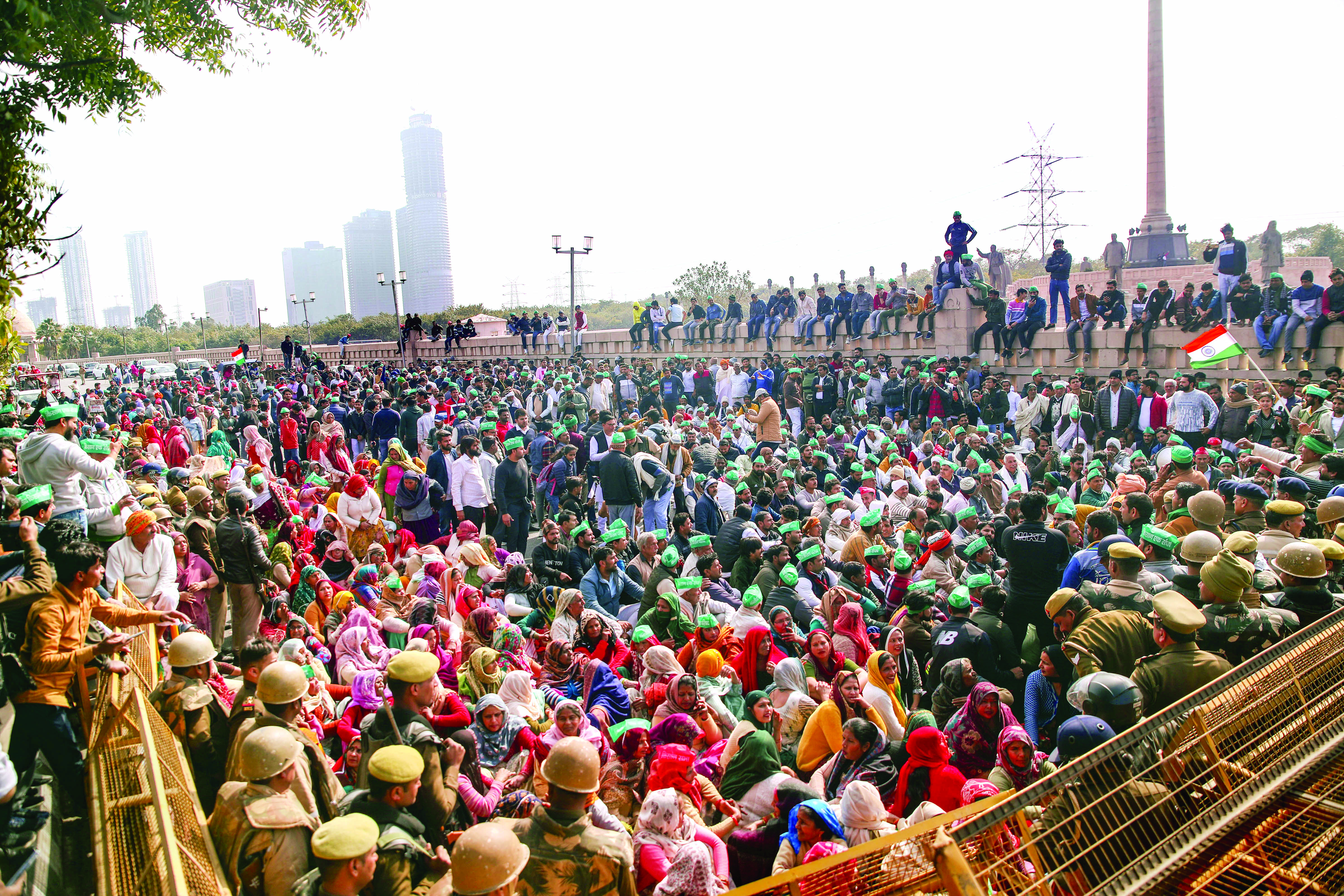Thousands of Noida, Greater Noida farmers stage protest, demanding higher compensation

NEW DELHI/ CHANDIGARH: Farmers from over 140 villages around Noida and Greater Noida in Uttar Pradesh made an unsuccessful bid to march toward Parliament on Thursday, seeking faster resolution to land acquisition issues and higher compensation.
Barricades were set up at Delhi-Noida border with Noida Police on one side and Delhi Police on the other side to prevent protesters, who started their march from Mahamaya Flyover in Noida around 12 pm, from entering the national capital.
Thousands of villagers, including women and elderly, demanded increased compensation and developed plots in exchange for land acquired by local development authorities in the past. The march resulted in severe traffic congestion and slowed movement on the Noida-Greater Noida Expressway and DND Flyway, impacting daily commuters.
Farmer leader Rakesh Tikait joined the protesters in Greater Noida in the afternoon where his Bharatiya Kisan Union (BKU) members have been protesting outside the local authority office. In Noida, the protesters were led by the Bharatiya Kisan Parishad (BKP), whose activists have held camps outside the local authority office since December 2023.
Several police personnel were in anti-riot gears equipped with tear gas shells and water cannons, even as personnel from the rapid action force and provincial armed constabulary were deployed at the Chilla border, officials said. At the border, heavy duty bulldozers, backhoe machines, riot control vehicles and water cannons were parked strategically, officials said.
Later, a scuffle broke out between several villagers and security personnel as they tried to detain local farmer leaders, including BKP leader Sukhbir Yadav ‘Khalifa’, near the Dalit Prerna Sthal.
Later in the night, a meeting between government officials, police and a delegation of protesting farmers was organised in Noida, and is believed to be still going on.
A BKP said that the farmers’ delegation would comprise 20 members led by BKP leader Sukhbir Yadav ‘Khalifa’.
The other side would include representatives of district administration, CEOs of Noida Authority, Greater Noida Authority and Yamuna Expressway Authority, the police commissioner, and officials of the UP Industrial Development Department, the BKP member added.
Ahead of the protest by the farmers in Noida and Greater Noida, the Gautam Buddh Nagar Police had imposed CrPC Section 144 for Wednesday and Thursday.
Meanwhile, in another significant development three-member team of Union ministers met leaders of farmer organisations in Chandigarh on Thursday, The farmer organisations have planned ‘Delhi Chalo’ march to press for their demands, including enactment of a law to guarantee a minimum support price for crops.
The team includes Union ministers Piyush Goyal and Arjun Munda, Kisan Mazdoor Sangharsh Committee general secretary Sarwan Singh Pandher said before the meeting began in the evening. Pandher said Punjab Chief Minister Bhagwant Mann coordinated with them for arranging the meeting with the Central team.
The Samyukta Kisan Morcha (Non-Political) and the Kisan Mazdoor Morcha had announced ‘Delhi Chalo’ march by more than 200 farmers’ unions on February 13 to press the Centre for accepting several demands, including enactment of a law to guarantee a minimum support price (MSP) for crops.
SKM (Non-Political) leader Jagjit Singh Dallewal had earlier said three central ministers will hold a meeting with them in Chandigarh. Chief Minister Mann will also be a part of the meeting. He said one of their main demands included a legal guarantee for the MSP which had been “promised” by the Centre earlier.
The farmers are also demanding the implementation of the Swaminathan Commission’s recommendations, pensions for farmers and farm labourers, farm debt waiver, withdrawal of police cases and “justice” for victims of the Lakhimpur Kheri violence.
In 2020, a large number of farmers from Punjab, Haryana and Uttar Pradesh, held a year-long protest on Delhi’s border points —Singhu, Tikri and Ghazipur — against the farm laws which were repealed by the Union government later.
with agency inputs.



